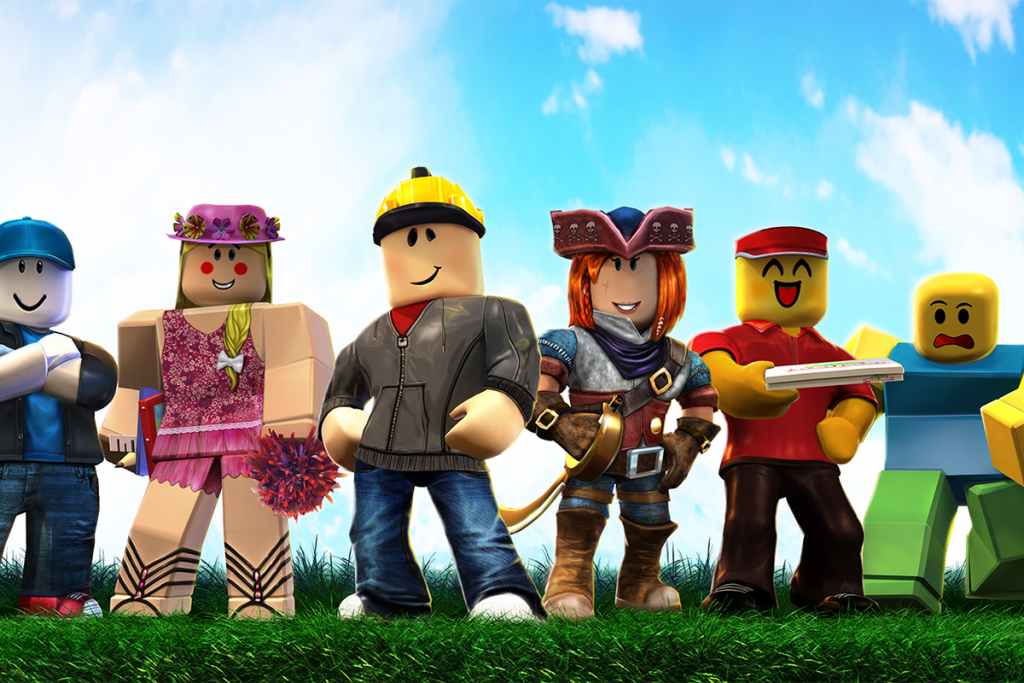
Roblox, the kids gaming app that surged in popularity during the pandemic, soared in its market debut on the New York Stock Exchange on Wednesday. The company’s stock closed at $69.50 apiece, giving the company a market cap of $38.26 billion.
Roblox went public through a direct listing, following the lead of other tech companies including Spotify, Slack and Palantir. Instead of raising fresh capital in exchange for new shares, Roblox allowed existing shareholders to sell immediately, without being subject to a lockup period.
Shares began trading at $64.50, which represented a 43% increase from a private financing round in January, when the company sold shares for $45. The NYSE set a reference price on Tuesday of $45, though no stock changed hands at those levels. The reference price tends to reflect private market trading and does not indicate where a stock will open.
Based on a fully diluted share count of 652 million, which includes restricted stock units that will convert to common stock, the company was worth $45.3 billion, as of its closing price.
Roblox hits the market coming off an explosive year of growth, primarily from kids who were stuck at home because Covid-19 forced schools to close and sports leagues to shut down. Within Roblox, which is one of the top-grossing apps on Apple and Google devices, users create avatars that they can move between the millions of games on the service, navigating theme parks, adopting virtual pets and fighting enemies with their friends.
Revenue last year jumped 82% to $923.9 million. Still, Roblox’s net loss widened to $253.3 million from $71 million in 2019 as the company almost tripled the amount of money it paid to developers through its revenue sharing program. More than 1,250 developers made at least $10,000 last year through virtual sales in their Roblox games.
Roblox had planned to go public late last year through a traditional IPO. The company delayed its offering after Airbnb and DoorDash debuted and underpriced their shares, leading to a huge discount for new investors. Roblox opted to go the direct listing route and raised a smaller funding round in January to minimize dilution.
The company then again delayed its debut last month and restated its financials after the SEC scrutinized the way it recognizes revenue from sales of Robux, its digital currency.
Roblox is a particularly difficult company to value because there’s no telling what will happen when schools reopen and kids return to playing with their real-life friends. The company has been adding content for older audiences, such as virtual concerts, meetups and educational experiences, but it’s still primarily reliant on kids using their parents’ money.
“Roblox has been growing for 15 years, driven by our community, driven by the awesome content, driven by our creators, and driven by our ability for people to do things together. That’s a long-term growth path, and we believe that continues forward, even after Covid,” Roblox CEO David Baszucki told CNBC’s “Squawk Box” early Wednesday.
Roblox is forecasting rapid growth in 2021, albeit at a much slower clip than last year. Revenue is expected to climb between 56% and 64% to between $1.44 billion and $1.52 billion, the company said last week. That suggests higher revenue per user, because the company sees the number of daily active users only increasing 6% to 12%, while total engagement hours are expected to be roughly flat.
“We headed into 2020 with strong organic growth which was further bolstered by social distancing restrictions,” Michael Guthrie, Roblox’s finance chief, said in the guidance statement. “As those restrictions ease, we expect the rates of growth in 2021 will be well below the rates in 2020, however, we believe we will see absolute growth in most of our core metrics for the full year.”
At its opening price on Wednesday, Roblox is valued at about 29 times revenue for 2021, based on the midpoint of its guidance. That’s slightly above software developer Unity, which is valued at about 27 times forward sales, and significantly higher than game companies such as Zynga, Electronic Arts and Playtika, which all have multiples in the single digits.





























